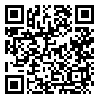Volume 6, Issue 23 (2009)
LIRE 2009, 6(23): 89-108 |
Back to browse issues page
Download citation:
BibTeX | RIS | EndNote | Medlars | ProCite | Reference Manager | RefWorks
Send citation to:



BibTeX | RIS | EndNote | Medlars | ProCite | Reference Manager | RefWorks
Send citation to:
Children Poetry and the Emergence of Verbal Aesthetics in Children. LIRE 2009; 6 (23) :89-108
URL: http://lire.modares.ac.ir/article-41-37606-en.html
URL: http://lire.modares.ac.ir/article-41-37606-en.html
Abstract: (2310 Views)
Ali Mohammad Haqshenas Lari,PH.D.
Ferdoos Aqagolzadeh, PH.D.
Aliye Kourd Zafaranlo Kamboziya,PH.D.
Fatemeh Alavi
Abstract
In the present study, the theory of Roqayeh Hassan on the emergence and development of verbal aesthetics in children is surveyed. According to this theory, a child unconsciously and involuntarily learns literature through hearing children’s lullabies and poetry. The child then identifies the phonetic, semantic and syntactical patterns in the poems and as a result a potentiality is formed in his mind; which builds up the basics of his verbal aesthetics in the following years. In this study, among the literary genres we merely focus on poetry. And among the literary patterns, we solely focus on phonetic patterns. It is noticeable that in this writing, investigation about the overlapping realms and at the same time the differences between ‘language’ and ‘literature’- as two of the scopes within the scopes of mind- exist at the background of all the discussions. In the next stage we will study what demands and theoretical consequences learning literature for teaching literature to children has due to the mentioned assumption. Based on the findings of this research, in children’s understanding and perception of literature, form prevails content and the cultivation of this assumption plays a significant role in developing their literary potential within the following years. Therefore, in writing children’s poetry it is better to pay sufficient attention to the aesthetic form and the manner in which the poetry is expressed rather than presenting complicated and educational content; especially in the early years of childhood. Among the aesthetic features of children’s poetry, pleasant and delicate phonetic patterns enjoy a vital significance. In the final part of this research we will investigate this question; to what extent the present theory and some of the other theories are useful in clarifying the major sources of literature? Are there other similar theories for the manner of elaboration and perception of literature? Does understanding the major source and the process of elaborating literature helps in understanding its entity?
Article Type: مقالات علمی پژوهشی |
Subject:
Child literature
Received: 2019/10/21 | Accepted: 2019/10/21 | Published: 2019/10/21
Received: 2019/10/21 | Accepted: 2019/10/21 | Published: 2019/10/21
| Rights and permissions | |
 |
This work is licensed under a Creative Commons Attribution-NonCommercial 4.0 International License. |






